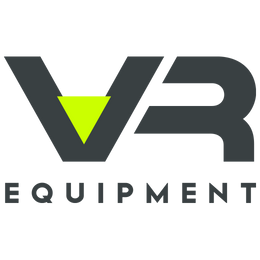CONTENTS
1 CODE OF CONDUCT
1. BUSINESS ETHICS AND COMPLIANCE
1.1. Regulatory compliance
1.2. Anti-corruption and antitrust
1.3. Conflicts of interest
1.4. Corporate integrity and transparency
2. HUMAN RIGHTS AND SOCIAL PRACTICES
2.1. Child labour
2.2. Modern slavery, forced, bonded, and compulsory labour
2.3. Compensation and benefits
2.4. Working schedule
2.5. Inclusion, non-discrimination, and harassment
2.6. Freedom of association
2.7. Health and safety
3. ENVIRONMENTAL PROTECTION AND SUSTAINABILITY
3.1. Environmental impact and dangerous substances
3.2. Air quality
3.3. Conservation and management of water resources
3.4. Waste management
3.5. SUSTAINABILITY
3.5.1 THE COMPANY'S APPROACH
3.5.2 THE SUSTAINABLE SUPPLY CHAIN
4. DATA AND INFORMATION SECURITY
3.6. Intellectual property
3.7. Data protection and confidentiality
1 CODE OF CONDUCT
The Supplier Code of Conduct of VR|46 Racing Apparel Srl (hereinafter also referred to as the "Company") defines the requirements for its customers and suppliers, as well as expectations on key matters of responsibility, including legality, anti-corruption, business ethics, sustainability, human rights, working conditions, and environmental protection.
This Code is inspired by internationally recognised principles such as the Universal Declaration of Human Rights, the UN Guiding Principles on Business and Human Rights, the fundamental principles of the UN Global Compact, and the United Nations 2030 goals – "Sustainable Development Goals" or "SDGs" – with the aim of integrating them into the procurement process.
Suppliers are therefore obligated to fully adhere to these requirements and, in turn, are expected to implement and spread them throughout their supply chain to advance social and environmental responsibility, as well as business ethics.
VR|46 Racing Apparel Srl carefully monitors compliance with this Code, as well as the Code of Ethics, ensuring the transparency of operations and conduct and intervening, where appropriate, with corrective actions.
1. BUSINESS ETHICS AND COMPLIANCE
1.1. REGULATORY COMPLIANCE
Suppliers must comply with all national and international laws, regulations, and industry standards applicable to their business, including local laws and regulations in all countries where operations are managed or services are provided.
1.2. ANTI-CORRUPTION AND ANTITRUST
The Company maintains a strict zero-tolerance policy towards any form of corruption or extortion. Suppliers must adhere to the relevant anti-corruption laws that regulate operations in the countries where they do business.
Suppliers must not offer, promise, make, accept, or grant improper payments in money or any other form, as well as favours, gifts, or other inappropriate forms of entertainment, to public officials, political parties, candidates for public office, or representatives of private companies or entities, with the aim of obtaining favourable treatment or promoting their own interests or those of the Company.
Suppliers must not offer, promise, or grant improper payments in money or any other form, as well as favours, gifts, or other inappropriate forms of entertainment to the Company’s staff in an attempt to influence their discretion in order to obtain or retain a supply contract or gain any other benefit, thereby gaining an unfair advantage over other potential suppliers.
Suppliers must therefore promote free competition and avoid engaging in anti-competitive practices such as price-fixing, deceptive or misleading behaviour, abuse of market power, or bid-rigging agreements.
Suppliers are therefore required to take reasonable measures to implement appropriate policies and procedures to prevent corruption or anti-competitive behaviour, including insider trading and money laundering.
1.3. CONFLICTS OF INTEREST
Suppliers must never seek to take advantage of their personal relationship with employees or associates of the Company.
1.4. CORPORATE INTEGRITY AND TRANSPARENCY
Suppliers are required to conduct all agreements and business transactions transparently and to record them accurately in their books and accounting records in accordance with applicable laws. They must not engage in or facilitate any form of money laundering, nor use confidential information to be involved in or support insider dealing activities.
2. HUMAN RIGHTS AND SOCIAL PRACTICES
The Company promotes the values expressed in the Universal Declaration of Human Rights and the main conventions of the International Labour Organization (ILO), conducting its activities by treating its workers and those of its suppliers with dignity and promoting fair employment practices that ensure decent living conditions.
2.1. CHILD LABOUR
The Company is against all forms of exploitation of child labour.
According to the ILO, child labour refers to any activity that harms a child's development, compromises their health, or prevents them from attending compulsory education. Suppliers must therefore comply with the regulations prescribed by the ILO, particularly Convention 138 on the minimum age for employment and Convention 182 on the worst forms of child labour, ensuring that child labour is not used in the supply of goods or the provision of services to the Company. All workers under the age of 18 must be protected from carrying out work that is potentially dangerous or harmful to their health, physical, mental, social, spiritual or moral development.
2.2. MODERN SLAVERY, FORCED, BONDED, AND COMPULSORY LABOUR
Suppliers oppose forced labour, as defined by the ILO , and condemn the use of all forms of forced or compulsory labour, including prison labour, debt bondage, coerced labour, modern forms of slavery, and any form of human trafficking within the value chain.
Suppliers ensure that all workers enjoy freedom of movement and are not subjected to physical restrictions, abuse, threats, or other practices such as the withholding of identity documents or valuable possessions. Suppliers must always act to protect and promote human rights in all their collaborations. They must ensure that all employees have the right to work freely, establish employment relationships recognised under their national laws and good practices, and ensure that employees are informed of their working conditions and receive regular compensation. Similarly, workers are free to terminate their employment contracts, in accordance with national legislation, without fear of retaliation or punishment.
2.3. COMPENSATION AND BENEFITS
Suppliers must comply with applicable regulations and collective labour agreements regarding wages and benefits. Suppliers must provide all employees with optimal working conditions and fair, competitive remuneration that ensures a decent standard of living. Therefore workers, in addition to their normal wages, must be paid for overtime in accordance with the provisions of current laws and collective bargaining agreements, receiving benefits in accordance with the law.
2.4. WORKING SCHEDULE
The Company expects its Suppliers to operate in compliance with ILO standards, applicable laws, and any collective agreements regarding working hours, rest periods, and paid leave. In addition, Suppliers must grant weekly rest periods, annual leave, and national holidays, as well as maternity leave, sick leave, and any other leave to the extent permitted by law and industry standards.
2.5. INCLUSION, NON-DISCRIMINATION, AND HARASSMENT
The Company expects its Suppliers to value diversity and inclusion and condemn any form of discrimination and inappropriate or disrespectful behaviour, such as bullying or physical, psychological, or sexual harassment in the workplace or during work-related events. Suppliers must take steps to implement measures that promote equal opportunities for all employees, fostering a diverse and inclusive work environment where employees are treated with dignity and respect, regardless of religion, race, gender, age, ethnic or national origin, disability, sexual orientation or preference, marital status, citizenship, political preference, or other personal characteristics.
Suppliers adopt the necessary measures and actions to identify, prevent, and reduce discrimination that may arise from, be contributed to, or be linked to their commercial relationships.
2.6. FREEDOM OF ASSOCIATION
Suppliers recognise the right of their employees to form and join a union of their choice and the right to collective bargaining without fear of intimidation or retaliation. Suppliers adopt the necessary measures and actions to identify, prevent, and counter discriminatory behaviours in the context of recruitment, training decisions, rewards, career advancement, dismissals, or transfers related to union organisation, membership, and activities.
2.7. HEALTH AND SAFETY
Suppliers are required to act in compliance with the provisions of current national and international standards, regulations and conventions on health and safety in the workplace. To minimise the risks of accidents, injuries, and occupational diseases, Suppliers must continuously ensure the adoption of management systems, measures, and actions necessary to provide and maintain a safe and healthy working environment for all employees, contractors, and visitors, by managing identified risks, implementing preventive measures, evaluating the effectiveness of these measures, and striving for continuous improvement. Furthermore, Suppliers must provide appropriate safety information, hold training courses for workers and develop adequate systems for detecting, analysing and eliminating any dangerous situation.
3. ENVIRONMENTAL PROTECTION AND SUSTAINABILITY
The Company is committed to developing a sustainable business, respecting the environment throughout the entire production chain, and expects the same from its Suppliers. They must, where possible, adopt certified management systems (e.g., ISO/IEC 14001:2015) and comply with applicable environmental regulations and requirements, which include, but are not limited to, obtaining and maintaining environmental permits; managing and disposing of hazardous materials and substances; emissions to air, water discharges; protection of natural resources and wildlife; waste management; material recycling; and respecting environmental rights.
3.1. ENVIRONMENTAL IMPACT AND DANGEROUS SUBSTANCES
The negative impact on the climate and the environment must be eliminated at the source or, at the very least, minimised through changes in production, processing, and maintenance processes, through the substitution of materials, and through the conservation, recycling, and reuse of materials.
The Company encourages its Suppliers to collaborate in calculating the environmental impact of the entire production chain in order to minimise its negative effects and promote sustainable processes by optimising the use of natural resources such as raw materials, water, and energy.
Suppliers are required to use any hazardous substances/chemicals and materials in compliance with legal requirements. In particular, they must prohibit the use of substances banned at the national and international levels due to their harmful effects on people or the environment. Additionally, they must implement appropriate measures for the management, storage, and transportation of hazardous substances/chemicals and materials.
3.2. AIR QUALITY
Suppliers must take appropriate measures to minimise emissions and impact on air quality, and implement, where possible, actions to monitor and reduce the possible production of greenhouse gases.
3.3. CONSERVATION AND MANAGEMENT OF WATER RESOURCES
Suppliers must take appropriate measures to minimise the impact on water resources, reducing their consumption, ensuring the maintenance or improvement of the quality of aquifers and promoting the conservation of water resources.
3.4. WASTE MANAGEMENT
Suppliers must take appropriate measures to minimise the production of waste and the consumption of natural resources. Suppliers must adopt regulated procedures and good practices for the management of the entire waste disposal cycle and promote the circular economy.
3.5. SUSTAINABILITY
3.5.1 THE COMPANY'S APPROACH
VR|46 is a young brand but already a leader in the motorcycle sports merchandising sector, focused on its economic development while not neglecting aspects related to environmental and social sustainability.
In 2016, VR|46 Racing Apparel Srl decided to undertake a process of evaluating its supply chain in order to assess its environmental and social impact and to initiate, in the coming years, a path of improvement with the collaboration of its suppliers.
VR|46 Racing Apparel Srl is also committed to raising awareness among customers, increasing their understanding of the environmental and social issues related to VR|46 products during the purchasing and usage process.
VR|46 Racing Apparel Srl firmly believes that this can be a small but important contribution to the environment and the community.
3.5.2 THE SUSTAINABLE SUPPLY CHAIN
VR|46 Racing Apparel Srl is committed to developing its supply chain in a responsible way.
To this end, the suppliers of the main and best-selling products of VR|46 Racing Apparel Srl (t-shirts, caps, sweatshirts, and polo shirts) are explicitly bound to the values of social and environmental responsibility through the "Supplier Code of Conduct". This Code is based on respect for human rights and the protection of the environment, and it applies to both Italian and foreign suppliers who have signed it.
The "Code of Conduct" was launched at the end of 2016 following a thorough process of evaluating the environmental and social sustainability profile of the suppliers.
3.5.3 PRODUCT SUSTAINABILITY
VR|46 has developed a classification system to help customers choose the most sustainable products and to inform them about the efforts made to reduce the environmental impact of its supply chain.
The label applied to the main products of VR|46 Racing Apparel Srl (t-shirts, caps, sweatshirts, and polo shirts) indicates the "sustainability rating" of the product, meaning how environmentally and socially responsible the suppliers producing them are, ranging from level "5," the best, to level "1".
This straightforward labelling helps customers recognise the environmental and social sustainability level when purchasing VR|46 products.
3.5.4 THE ENVIRONMENTAL IMPACT AFTER THE PURCHASE
The environmental footprint of the entire lifecycle of a cotton t-shirt is 2.34 kg CO2, representing the total carbon dioxide and other greenhouse gases emitted during the extraction of raw materials, production, printing, transportation, packaging, sales, use, and disposal.
The phase with the greatest environmental impact is the product's use by consumers, which accounts for 48% of the total environmental impact. This is calculated based on washing, drying, and ironing the t-shirt twenty-five times during its useful life.
VR|46 Racing Apparel Srl aims to go beyond the product and influence its customers' behaviour after the purchase.
4. DATA AND INFORMATION SECURITY
3.6. INTELLECTUAL PROPERTY
Suppliers must respect the intellectual property of others. Suppliers must take the necessary measures to protect and safeguard the confidential information, proprietary data, or trade secrets of their business partners and use such information only for purposes authorised by contractual agreements.
3.7. DATA PROTECTION AND CONFIDENTIALITY
The Company expects its Suppliers to ensure that all confidential information and personal data is adequately protected. Suppliers are required to comply with all applicable laws and regulations regarding the protection of personal data. Suppliers must protect personal data and information from the risk of loss of availability, integrity and confidentiality by adopting physical, organisational and technological security measures to mitigate the risks.
USER MANUALS
For correct use of the product it is mandatory to read and understand the user and maintenance manual. With an ever greener perspective, you can download it in digital format.










